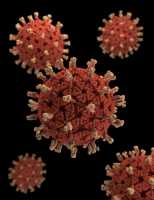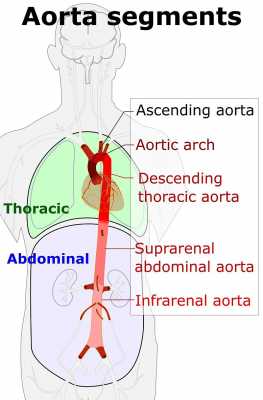MedicalResearch.com Interview with:
Jennifer E Posey MD, PhD
Assistant Professor
Department of Molecular and Human Genetics
Baylor College of Medicine
Tamar Harel MD, PhD
Clinical Genetics Academic Research Fellow
Department of Molecular and Human Genetics
Baylor College of Medicine
Current affiliation:
Department of Genetic and Metabolic Diseases
Hadassah-Hebrew University Medical Center
Jerusalem, Israel
MedicalResearch.com: What is the background for this study? What are the main findings?
Response: As physician scientists and geneticists, our goal is to understand how genetic variation in each of us can impact health and disease. Physicians are often taught that the simplest explanation for a medical condition is the most correct explanation, and have historically searched for a single unifying diagnosis. However, in our own practice, we have met – and learned from – individuals who have more than one genetic condition affecting their health.
In the past, it was difficult for physicians to diagnose such individuals. Genetic testing required a physician to recognize the potential for more than one genetic diagnosis in an individual. Single-gene and gene panel testing provided an additional barrier to accurate diagnoses, as they are more narrow in scope, and more than one molecular test was often needed to identify all conditions. Targeted testing also required a physician to accurately pre-suppose which combination of genetic conditions was most likely, and choose the correct targeted tests.
The clinical availability of whole exome sequencing (WES) has removed these barriers: WES is a broad-based, unbiased analysis of an individual’s genetic variation that does not pre-suppose a specific genetic cause. If analysis is pursued systematically, WES can identify more than one genetic diagnosis in an individual, even when not suspected.
In our study, we have been able to assess the frequency with which individuals can have more than one genetic diagnosis, and have begun to understand how genetic variation at more than one place in the genome can affect how a condition may present. We found that among 7,374 individuals referred for WES, 2,076 (28%) had a molecular diagnosis. Of these 2,076, 5% had two, three, or four molecular diagnoses. In our analyses of the clinical features that may be observed in an individual with two genetic conditions, we found that pairs of diagnoses with overlapping clinical features may be incompletely diagnosed as having one or the other condition, and pairs of diagnoses with very distinct clinical features may be erroneously diagnosed in the clinic as having an entirely new condition.
(more…)







![MedicalResearch.com Interview with: Melissa Bondy, PhD Chair, Department of Epidemiology and Population Health Stanford University MedicalResearch.com: What is the background for this study? Response: Faculty researchers in Stanford’s Department of Epidemiology & Population Health and collaborators from Baylor College of Medicine and Stanford’s Department of Dermatology developed an online survey aimed at rapidly assessing public concerns about the COVID-19 crisis. This survey, which was posted on 3 social media platforms (Twitter, Facebook, and Nextdoor) on March 14, 2020, collected invaluable data about COVID-19, including symptoms, concerns, and individual actions taken by respondents. Twitter and Facebook posts were sharable to facilitate snowball sampling. The survey was comprised of 21 (multiple-choice, single-choice, numeric, and open-ended) questions, which were designed to collect data concerning respondent demographics and recent cold and flu-like illnesses (if any), as well as information about participants’ concerns and any lifestyle changes that occurred as a result of the COVID-19 crisis. All questions were optional, so response rates were variable. MedicalResearch.com: What are the main findings? Response: 9009 surveys were completed within a 48 hour period, between March 14 and 16. A majority were very or extremely concerns about COVID-19, though concern varied by age. Most respondents reported making lifestyle changes in response to COVID-19. The most common changes were more hand washing, avoiding social gatherings, and stockpiling food and supplies. About half of respondents were self-isolating most of the time before shelter-in-place orders, and leaving the house only to buy food and essentials. Respondents who were not self-isolating all of the time, before the shelter-in-place order, most commonly listed not being able to afford missing work as the reason. The top concerns reported by survey participants were getting sick because of COVID-19 and not being able to get medical care. The most common difficulties reported were obtaining hand sanitizer, food, and childcare. MedicalResearch.com: What should readers take away from your report? Response: This convenience sample survey distributed in mid-March 2020 across 3 social media platforms reflect respondents’ serious concerns about COVID-19. They were preparing for the crisis by washing hands, isolating at home, and practicing social distancing to the best of their abilities. Levels of concern about COVID-19 varied by age groups. Participants expressed the most common difficulties included getting sanitizer or food, arranging childcare, and lost wages or reduced working hours. MedicalResearch.com: What recommendations do you have for future research as a result of this work? Response: Groups who are generally known to be underrepresented in social media, particularly men and older individuals, were underrepresented among survey participants. Few respondents reported concerns about their employment, but the study did not collect information about participants’ socioeconomic status (and was likely high). Our future work will expand geographic representation among survey respondents, with greater focus on longitudinal trends on the health, financial, and social concerns in the United States regarding the COVID-19 pandemic. No disclosures or conflicts of interest. Citation: Nelson LM, Simard JF, Oluyomi A, et al. US Public Concerns About the COVID-19 Pandemic From Results of a Survey Given via Social Media. JAMA Intern Med. Published online April 07, 2020. doi:10.1001/jamainternmed.2020.1369 https://jamanetwork.com/journals/jamainternalmedicine/fullarticle/2764368?guestAccessKey=cd7f419d-b177-44d2-86b2-c3e0254b3152&utm_source=For_The_Media&utm_medium=referral&utm_campaign=ftm_links&utm_content=tfl&utm_term=040720 [subscribe] Last Modified: [last-modified] The information on MedicalResearch.com is provided for educational purposes only, and is in no way intended to diagnose, cure, or treat any medical or other condition. Always seek the advice of your physician or other qualified health and ask your doctor any questions you may have regarding a medical condition. In addition to all other limitations and disclaimers in this agreement, service provider and its third party providers disclaim any liability or loss in connection with the content provided on this website.](https://medicalresearch.com/wp-content/uploads/2020/04/Melissa-Bondy.jpg)


